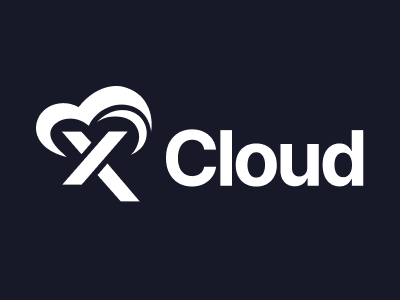Description

Opsgenie

SQL Monitor
Comprehensive Overview: Opsgenie vs SQL Monitor
OpsGenie and SQL Monitor are both specialized tools catering to different needs within the IT operations and database management spheres. Let's take a comprehensive look at each, including their primary functions, target markets, market share, and key differentiating factors.
OpsGenie
a) Primary Functions and Target Markets
Primary Functions: OpsGenie is an incident management and on-call scheduling tool designed to help organizations respond to critical IT issues. Its core functionalities include:
- Alert management and notification through multiple channels (e.g., email, SMS, mobile push).
- On-call scheduling to ensure the right people get alerted at the right time, minimizing downtime.
- Escalation policies and routing rules to automate incident response workflows.
- Integration capabilities with a wide range of monitoring, chat, and IT Service Management (ITSM) tools.
- Reporting and analytics to track incident response performance.
Target Markets: OpsGenie is aimed at IT operations, DevOps teams, and support teams across small, medium, and large enterprises. The tool is particularly valuable for organizations with complex IT environments that require rapid incident response and effective on-call management.
b) Market Share and User Base
As part of the Atlassian ecosystem, OpsGenie benefits from the strong market presence of Atlassian products like Jira. It's a popular choice among companies looking for integrated solutions, especially those already using Atlassian’s suite of tools. OpsGenie has a significant user base within the DevOps and IT service management communities, although precise market share figures are often proprietary and challenging to pinpoint.
c) Key Differentiating Factors
- Integration with Atlassian Tools: OpsGenie's seamless integration with Jira and other Atlassian products is a strong differentiator, offering a cohesive ecosystem for teams already using these tools.
- Time-based Routing Policies: These policies provide flexibility in how alerts are distributed and escalated based on the time of day or week.
- Comprehensive Mobile App: OpsGenie's mobile app is highly regarded for its usability, providing full incident management capabilities on the go.
SQL Monitor
a) Primary Functions and Target Markets
Primary Functions: SQL Monitor is a database monitoring tool specifically designed for Microsoft SQL Server environments. Its main functionalities include:
- Real-time, performance monitoring of SQL Server instances and databases.
- Alerting for performance issues, downtime, availability, and other critical incidents.
- Historical data analysis to identify performance trends and issues over time.
- Customizable dashboards for tracking key performance metrics.
- Resource analysis to optimize SQL Server resource usage.
Target Markets: SQL Monitor is geared towards database administrators (DBAs), IT operations teams, and organizations with significant reliance on SQL Server databases, ranging from small businesses to large enterprises.
b) Market Share and User Base
SQL Monitor, developed by Redgate Software, is recognized as a leading tool within its specific niche of SQL Server monitoring. While it caters to a specialized market, it holds a strong position among SQL Server professionals. Market share data is similarly proprietary; however, SQL Monitor's reputation and feature set have established it as a popular choice for companies using SQL Server.
c) Key Differentiating Factors
- Focus on SQL Server: Unlike broader monitoring tools, SQL Monitor is tailored specifically to SQL Server environments, providing in-depth insights that databases may not obtain from generalist monitoring solutions.
- Ease of Deployment and Use: Known for its user-friendly interface and straightforward setup, SQL Monitor allows organizations to quickly begin monitoring their databases without extensive configuration.
- Customizable Alerts and Reporting: SQL Monitor offers strong alerting capabilities with the ability to customize alerts based on specific criteria relevant to SQL Server environments.
Overall Comparison
OpsGenie and SQL Monitor serve fundamentally different purposes — one focuses on incident management across IT systems, while the other zooms in on SQL Server performance monitoring. This fundamental difference delineates their target markets and use cases. In terms of market share, both products are leaders within their respective niches, but OpsGenie's integration with the Atlassian ecosystem and emphasis on broader IT incident management offer a wider application compared to the specialized focus of SQL Monitor. Their key differentiating factors highlight their unique strengths which cater to the specific needs of their user bases.
Contact Info

Year founded :
2012
+1 571-748-7000
Not Available
United States
Not Available

Year founded :
Not Available
Not Available
Not Available
Not Available
Not Available
Feature Similarity Breakdown: Opsgenie, SQL Monitor
Sure, let's break down the feature similarities and differences between Opsgenie and SQL Monitor:
a) Core Features in Common
Opsgenie and SQL Monitor serve different primary purposes, but they do intersect in some areas of functionality related to IT operations management. Here are some core features they share:
-
Alerting and Notification: Both Opsgenie and SQL Monitor provide robust alerting systems. They can notify users of significant events that require attention through various channels like email, SMS, mobile apps, and integrations with other tools.
-
Integration Capabilities: Both tools can integrate with a variety of third-party services and applications to extend their functionality and create more comprehensive monitoring and incident response systems.
-
Dashboarding and Reporting: Both offer dashboards and reporting features that allow users to visualize data and insights into the health and performance of systems or services being monitored.
-
Real-time Monitoring: Both solutions provide real-time monitoring capabilities to keep track of systems' health and performance, though each focuses on different aspects (Opsgenie more on incident response and SQL Monitor on SQL Server performance).
b) User Interface Comparisons
-
Opsgenie: Opsgenie offers a modern UI focused primarily on incident management. It is designed to support quick navigation through alerts and incidents, providing users with customizable dashboards, a timeline view for events, and drill-down capabilities for detailed analysis of incidents. The UI is optimized for responding to alerts and managing on-call schedules.
-
SQL Monitor: SQL Monitor’s interface is tailored towards database administrators and focuses on providing a clear view of SQL Server instances. It emphasizes status overviews for easy identification of issues with visualizations of SQL Server performance metrics. The user interface is structured to facilitate quick navigation through different monitored environments and detailed performance data.
c) Unique Features that Set Them Apart
-
Opsgenie Unique Features:
- On-Call Management: Opsgenie offers comprehensive on-call scheduling and management features to ensure the right people are notified at the right times. This includes routing rules, escalations, and rotations.
- Incident Response: Opsgenie supports incident response management with features like post-mortems and incident command centers.
-
SQL Monitor Unique Features:
- SQL Server Specific Monitoring: SQL Monitor provides specialized monitoring tailored for SQL Server environments, including performance metrics, alerts tailored to SQL Server, resource usage, and query analysis.
- Performance Baselines: SQL Monitor allows users to set performance baselines to help quickly identify deviations that may indicate problems.
Conclusion
While both Opsgenie and SQL Monitor share capabilities related to alerting and integration, they cater to different domains: Opsgenie focuses on general incident management and response, whereas SQL Monitor specializes in monitoring SQL Server environments. This specialization defines their unique features and interfaces, making them suitable for various aspects of IT operations management.
Features

On-Call Management
Reporting & Analytics
Integration Capabilities
Incident Management
Collaboration & Communication

Security and Compliance
User-Friendly Interface
Real-time Monitoring
Scalability and Flexibility
Performance Tracking
Best Fit Use Cases: Opsgenie, SQL Monitor
Opsgenie and SQL Monitor are tools designed to serve distinct purposes within the realm of IT operations and database management. Here are the best-fit use cases for each:
Opsgenie
a) For what types of businesses or projects is Opsgenie the best choice?
Opsgenie is an incident management platform that is particularly well-suited for:
-
Large Enterprises and IT Departments: Companies with complex IT infrastructures and a wide array of applications and services can benefit from Opsgenie's robust alerting and on-call management capabilities.
-
DevOps Teams: As a key tool in the DevOps arsenal, Opsgenie helps streamline incident response and aligns with practices focused on continuous development and integration.
-
Managed Service Providers (MSPs): These organizations can leverage Opsgenie to manage alerts across various clients, ensuring a responsive and efficient service.
-
24/7 Operations: Businesses that operate around the clock, such as e-commerce platforms, financial services, and healthcare providers, can rely on Opsgenie for effective alerting during off-hours.
-
Fast-Paced Startups: For startups focused on rapid growth and development, Opsgenie can help maintain service reliability with limited human resources dedicated to incident management.
SQL Monitor
b) In what scenarios would SQL Monitor be the preferred option?
SQL Monitor is a SQL Server performance monitoring tool, particularly beneficial for:
-
Organizations with Significant SQL Server Deployments: Companies that rely heavily on Microsoft SQL Server databases, such as those in finance, retail, or healthcare, will find SQL Monitor indispensable for performance tuning and troubleshooting.
-
Database Administrators (DBAs): Teams that need to manage and optimize database performance regularly will benefit from SQL Monitor's comprehensive insights and alerts.
-
Data-Driven Applications: Businesses that offer applications or services dependent on real-time data processing and management (for example, analytics or business intelligence solutions) can leverage SQL Monitor to ensure efficient performance of their databases.
-
IT Departments Focused on Preventative Maintenance: SQL Monitor is ideal for organizations that value proactive database management to prevent issues before they impact the user experience.
d) How do these products cater to different industry verticals or company sizes?
-
Industry Verticals:
-
Opsgenie: This product is versatile across various verticals like technology, finance, healthcare, and e-commerce, all of which require reliable and real-time incident management.
-
SQL Monitor: Primarily caters to sectors that manage substantial amounts of data and require secure, efficient database operations, such as finance, healthcare, and telecommunications.
-
-
Company Sizes:
-
Opsgenie: Scales well from startups to large enterprises. Its pricing and feature set can accommodate small teams needing simple on-call functions to large organizations requiring complex escalations and integrations with other tools.
-
SQL Monitor: While it primarily targets medium to large organizations with dedicated database management teams, even smaller companies can benefit from its ability to identify and resolve database performance issues efficiently.
-
Both tools facilitate operational excellence but cater to different functions within an organization, highlighting the importance of aligning tool selection with business needs and organizational structure.
Pricing

Pricing Not Available

Pricing Not Available
Metrics History
Metrics History
Comparing teamSize across companies
Conclusion & Final Verdict: Opsgenie vs SQL Monitor
When comparing Opsgenie and SQL Monitor, you are evaluating two distinct tools designed for different purposes within IT and software management. Thus, it's crucial to understand their core capabilities and applicability to specific needs before making a choice.
a) Overall Value
Opsgenie specializes in incident management and alerting. It excels in providing real-time alerts, which facilitates quick responses to system outages or performance issues. It is ideal for teams looking to enhance their DevOps operations, improve incident response times, and ensure seamless communication during outages.
SQL Monitor, on the other hand, is tailored for SQL Server database administrators. It offers robust capabilities for monitoring SQL Server performance, identifying bottlenecks, and ensuring database health, making it particularly valuable for organizations that are heavily reliant on SQL Server databases for their operations.
Overall Value Verdict:
- If your primary need is efficient incident management with strong alerting capabilities across diverse systems, Opsgenie offers excellent value.
- If your focus is on SQL Server performance and database health, SQL Monitor delivers the best value.
b) Pros and Cons
Opsgenie Pros:
- Comprehensive incident management features.
- Superior integration with numerous DevOps tools.
- Customizable alerting policies for tailored responses.
- Strong focus on team collaboration during incidents.
Opsgenie Cons:
- May be overkill if database monitoring is the sole requirement.
- Learning curve for teams new to comprehensive incident management systems.
- Can become costly depending on the scale of use and additional integrations.
SQL Monitor Pros:
- Detailed SQL Server performance monitoring.
- User-friendly dashboard for straightforward data interpretation.
- Proactive issue identification helps ensure database reliability.
- Offers historical data for trend analysis and capacity planning.
SQL Monitor Cons:
- Limited to SQL Server environments; not applicable to broader incident management needs.
- Lack of broader alert management and team collaboration tools.
c) Recommendations
-
Assess Your Needs: Start by clearly defining whether your main requirement is incident management, database monitoring, or both. Your primary needs will heavily influence which tool offers the best value.
-
Consider Your Environment: If your IT landscape involves extensive use of SQL Server databases where performance and reliability are critical, SQL Monitor would be more beneficial. Conversely, if your environment demands agile incident management and alerting across a variety of systems, Opsgenie should be the preference.
-
Budget Considerations: Both tools can have significant cost implications, especially as you scale operations. Carefully evaluate your potential return on investment from each tool.
-
Scalability and Integration: For organizations anticipating growth or increased complexity in their IT infrastructure, the capability of these tools to integrate well with existing systems and scale as needed should be a deciding factor.
In conclusion, the decision between Opsgenie and SQL Monitor should be driven by your organization's specific operational needs and infrastructure. Understanding the core purpose of each tool, combined with a thorough assessment of needs and future growth plans, will lead to the most informed decision.
Add to compare
Add similar companies



